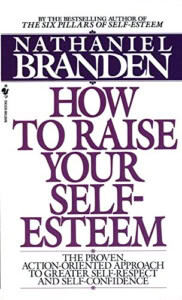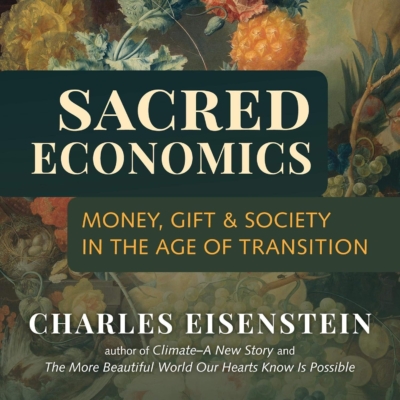Unlock Your Financial Potential: Understanding Your Money Mindset
 Inherited Beliefs About Money
Inherited Beliefs About Money
Our relationship with money often begins with inherited beliefs from family and society. These beliefs shape our financial habits and attitudes, sometimes without us even being aware of them. For example, if you grew up hearing phrases like “money doesn’t grow on trees” or “we can’t afford that,” you might subconsciously adopt a scarcity mindset. This mindset can limit your financial growth by making you believe that resources are always limited and opportunities are scarce.
Furthermore, cultural and societal norms play a significant role in shaping our beliefs about money. Different cultures have varying attitudes toward wealth, savings, and spending. Reflecting on these inherited beliefs allows you to better understand the foundation of your financial behaviors.
Psychological Blocks to Attracting Wealth
Psychological barriers are another critical aspect that can impede financial success. These include fears, anxieties, and deeply-rooted mental blocks. For instance, the fear of failure can prevent you from taking necessary financial risks, like investing or starting a business. Anxiety about money can make financial planning seem daunting, causing procrastination and poor money management.
Many individuals also suffer from cognitive dissonance—holding contradictory beliefs about money. For example, wanting to be wealthy while simultaneously believing that rich people are greedy. Psychological Blocks to Attracting Wealth: Limiting beliefs and negative emotions can sabotage financial stability.
 Negative Perceptions of Wealth and Their Origins
Negative Perceptions of Wealth and Their Origins
Negative perceptions of wealth often stem from early life experiences and societal conditioning. Statements like “rich people are selfish” or “money corrupts” create a negative association with wealth. This can cause you to unconsciously push money away because, deep down, you don’t want to become the type of person you have learned to resent.
Another origin of negative perceptions is personal experiences. If you’ve witnessed financial struggles or corruption firsthand, you might develop a negative outlook on money. Your brain may associate financial success with moral or ethical compromise, making striving for wealth difficult.
These negative perceptions are powerful enough to significantly influence one’s financial behavior and decisions. Identifying and addressing them is essential for creating a healthier relationship with money.
By understanding the inherited beliefs, psychological blocks, and negative perceptions surrounding money, we can begin to address the root causes of our financial struggles. Exploring these foundational aspects sets the stage for uncovering deeper subconscious money beliefs, which we will delve into next, focusing on how these beliefs shape our financial reality.
AFFILIATE DISCLAIMER: The Explorer’s Footnote
Just so you know, some of the links trekking across our site are like well-traveled backpackers and spiritual seekers. They may lead you to products and places that could earn us a tiny commission if you decide to bunk with them. It’s like buying us a cup of coffee without the coffee! But worry not, our love for these finds wasn’t bought – it’s genuine and trusty as a sturdy pair of hiking boots.
PhD Neuroscientist:
”This 7-Second Tesla Ritual Attracts Money To You”
Introducing the first Deep Theta Soundwave developed by the top neuroscientists and psychologists proven to uniquely target your hippocampus and activate your Money Wave..
It’s simple, easy and you can do it at-home:
While other people are trapped in dead-end careers..
Or spending $80,000 on a Master’s degree so they can move one rung up the corporate ladder..
You can lay back with a set of headphones for 7 minutes and let the money start to come to you..
All by harnessing the power of the top neuroscientists and psychologists in America..
*According to our consciousness testing, The Money Wave is of higher consciousness, positively oriented, upward-lifting, and constructive. According to ConsciousnessCalibrations.com, binaural beats therapies are also proven to be of higher consciousness and, therefore, worthy of your consideration.
During our muscle testing of 17 attractive offers I considered curating for you and our audience, The Money Wave “held strong.” In other words, we got the “A-OK” to share it with you. We prioritized our list of exciting therapies and services, and The Money Wave came in at #5 of 12, just behind The Genius Wave at #3.
Identifying Subconscious Money Beliefs
 The ‘Money is the Root of All Evil’ Mentality
The ‘Money is the Root of All Evil’ Mentality
Many people subconsciously believe that money is inherently bad. This belief often stems from a misinterpretation of the phrase “money is the root of all evil,” which actually originated from the Bible as “the love of money is the root of all evil.” The distinction is crucial. It’s not money itself that is problematic, but the obsession with it.
Believing money is evil creates a psychological barrier that can hinder your ability to attract wealth. You may subconsciously sabotage financial opportunities because, deep down, you believe that having more money would make you a worse person. It’s essential to shift this mindset. Understand that money is a neutral tool—it can be used to foster both positive and negative outcomes depending on how it’s wielded.
Unworthiness and Its Impact on Financial Success
Another pervasive subconscious belief is the feeling of unworthiness. Many people heard phrases like “money doesn’t grow on trees” or “we can’t afford that.” These statements can implant the idea that they’re not meant to have money, leading to a sense of unworthiness.
Feeling unworthy of financial success creates a self-fulfilling prophecy. You might avoid asking for a raise, miss out on investment opportunities, or even refuse to start that business you’ve always dreamed about. The key to overcoming this barrier is recognizing your inherent worth. Remember, you deserve financial abundance as much as anyone else. Your self-worth is not tied to your net worth.
IMPORTANT NOTE: According to ConsciousnessCalibrations.com, the energy field of worthy is 255 on the Map of Spiritual Progress, which “holds truth” and is a positively oriented and constructive energy field, whereas UNWORTHY calibrates at 160 on the Map of Spiritual Progress. UNWORTHINESS is a negatively oriented, downward-pulling, destructive, and impersonal attractor field of energy.
 How Self-Esteem Affects Your Financial Energy Field
How Self-Esteem Affects Your Financial Energy Field
Self-esteem plays a significant role in your financial energy field—the unseen force that attracts or repels money. How Self-Esteem Affects Your Financial Success: High self-esteem can lead to better economic opportunities. Because you believe you’re worthy of success and can visualize it manifesting in your life. Conversely, low self-esteem acts like a magnet that repels financial opportunities.
Poor self-esteem means undervaluing your skills, labor, and contributions. For example, you might price your services too low or accept a job that pays less than you’re worth. Improving self-esteem involves acknowledging your strengths, achievements, and the value you bring to the table. Celebrate your successes, no matter how small, and let them affirm your worth.
Understanding these subconscious beliefs is the first step toward transforming your relationship with money. As you become more aware of these ingrained perceptions, you’re better equipped to tackle them head-on and reprogram your mind for financial success. This awareness lays a strong foundation for the practical steps we’ll explore next on your journey to financial empowerment.
Join Mind Valley and Uplevel Your Money Mindset
Unleash Your Mind With *The Silva Ultramind System.
For the individual in search of activating their mind’s full potential…
Are you looking for a solution to a stubborn challenge or uncertainty?
A way to more quickly manifest a personal or professional goal?
Or perhaps you crave greater alignment with your most authentic purpose and potential?
You may have been told that the answers you seek are waiting inside you. But how exactly do you access them?
As you’re about to discover, the answer is in accessing altered states of consciousness that everyone is born with – but few know how to access at will.
You gain this priceless skill through The Silva Method, one of the most acclaimed, enduring, and scientifically proven approaches to mind empowerment on the planet.
Get Access to The Silva Ultramind System here.
*According to ConsciousnessCalibrations.com, The Silva Method and the original creator, Jose Silva, are both of significant higher consciousness in the levels of consciousness known as reason and rationality.
Scale of Consciousness Calibrations
 All of Dr. Bradly Nelson’s books and blueprints for healing calibrate in the 300s:
All of Dr. Bradly Nelson’s books and blueprints for healing calibrate in the 300s:
To learn more about higher levels of consciousness, click here, and for lower levels of consciousness, click here.
The Connection Between Self-Worth and Wealth
How Self-Worth Reflects in Your Income
Your self-worth is intricately linked to your financial well-being. If you have high self-esteem, you’re more likely to believe you deserve financial prosperity, which manifests in your income. Conversely, you might unconsciously limit your financial potential if you have low self-worth. This sense of “unworthiness” can hinder you from seeking higher-paying jobs, negotiating salaries, or investing in opportunities that could yield substantial returns.
The Cycle of Low Self-Esteem and Financial Struggles
The relationship between low self-esteem and financial struggles often creates a vicious cycle. Here’s how it typically unfolds:
- Belief in Unworthiness: You might believe you don’t deserve financial success.
- Avoiding Opportunities: This belief can lead you to avoid opportunities that could improve your financial situation.
- Financial Struggles Persist: Without seizing these opportunities, financial struggles continue.
- Reinforced Beliefs: The persistent financial difficulties reinforce the initial belief of unworthiness.
Breaking this cycle requires challenging and changing your beliefs about self-worth and finance. Understanding that your bank balance doesn’t determine your value can be a pivotal first step.
Breaking the Link Between Self-Worth and Monetary Value
 To separate your sense of self-worth from your monetary value, consider these transformative steps:
To separate your sense of self-worth from your monetary value, consider these transformative steps:
- Acknowledge and Assess: Start by acknowledging that your worth isn’t tied to your financial status. Assess where these limiting beliefs originated.
- Positive Affirmations: Develop and repeatedly say positive affirmations that reinforce your intrinsic worth, such as, “I am worthy of financial success.”
- Set Boundaries: Learn to set boundaries in your personal and professional life to protect your time and energy, which helps diminish feelings of unworthiness.
- Seek Support: Work through these deep-seated beliefs with a financial or psychological counselor or Certified Belief Code Practitioner. Often, an outside perspective can provide pivotal insights.
- Celebrate Small Wins: Celebrate your financial milestones, no matter how small. Appreciating these accomplishments encourages a positive shift in self-worth and financial management habits.
By consistently applying these steps, you effectively rewrite the narrative that equates self-worth with monetary value, establishing a healthier, more empowering relationship with money. This transformation not only fosters a sense of personal fulfillment but also opens the door to attracting greater financial abundance.
Scale of Consciousness Calibrations
According to ConsciousnessCalibrations.com, there is a correlation between self-worth and money:
Statement: self-esteem is automatically monetized 10
cal. 350 (205 – 490)
To learn more about higher levels of consciousness, click here, and for lower levels of consciousness, click here.
Discover even more insightful calibrations on self-esteem here:
Steps to Improve Your Relationship with Money
Practical Exercises for Shifting Money Mindset
 Transforming your financial mindset requires practical, actionable steps. Here are some exercises designed to help you shift your money mindset:
Transforming your financial mindset requires practical, actionable steps. Here are some exercises designed to help you shift your money mindset:
- Journaling: Write about your financial fears and aspirations. Address questions like, “What is my earliest memory of money?” and “What does financial success mean to me?”
- Visualization: Spend a few minutes daily visualizing your financial goals. Picture yourself achieving them and experiencing the emotions tied to that success.
- Gratitude Practice: Acknowledge and appreciate what you currently have. Gratitude fosters a positive mindset, attracting more abundance into your life.
Techniques for Building Financial Self-Esteem

According to ConsciousnessCalibrations.com, the content of the book is of higher consciousness and “Holds Truth”
Building financial self-esteem involves recognizing your value and abilities. Implement these techniques to elevate your financial confidence:
- Acknowledge Your Achievements: Regularly remind yourself of your successes, big and small. This helps build a resilient self-image.
- Set Manageable Goals: Break down larger financial goals into smaller, achievable tasks. Celebrate each milestone to maintain motivation and self-confidence.
- Invest in Self-Development: Continuous learning and skill acquisition can boost your competence and financial worth. Consider courses, seminars, or even books that expand your financial knowledge.
Creating Positive Money Affirmations and Habits

According to ConsciousnessCalibrations.com, the content of this book is also of higher consciousness and “Holds Truth”
Developing positive affirmations and habits can rewire your subconscious beliefs about money:
- Daily Affirmations: Create and repeat affirmations like, “I am worthy of financial success” or “Money flows to me easily.” Consistent repetition helps instill these beliefs into your subconscious.
- Healthy Spending Habits: Track your spending to understand where your money goes. Create a budget that prioritizes savings and reduces unnecessary expenses.
- Automate Savings: Set up automatic transfers to your savings account. This minimizes the temptation to spend and ensures consistent saving habits.
Improving your relationship with money takes time and effort. Still, you can create a healthier financial mindset by integrating these practical exercises, techniques for building financial self-esteem, and positive habits and affirmations. This journey transforms your financial outlook and supports personal growth, fostering overall well-being and abundance in your life.
What’s Your Money Scorecard? Take Your Assessment Here.
Join Mind Valley and Uplevel Your Relationship with Money
 A new wealth masterclass with Ken Honda, Japan’s most influential money master: FREE masterclass: The Japanese art of healing your money wounds
A new wealth masterclass with Ken Honda, Japan’s most influential money master: FREE masterclass: The Japanese art of healing your money wounds
Could a disempowering ‘Money Story’ in your head quietly keep you stuck in a financial rut? Discover how to rise above your negative beliefs, build the wealth you desire and finally make peace with your money.
Get Access to Money EQ with Ken Honda here.
Why Does Money Mindset Matter?
Understanding why money mindset matters is crucial for anyone looking to improve their financial well-being. Your money mindset shapes your financial behaviors and decisions, influencing how you save, spend, and manage your finances. A positive money mindset can decrease worries about finances and give you an actionable plan to work towards your goals confidently. It also affects your attitude toward debt, your ability to invest with confidence, and how easily you can give to others. By cultivating a healthy relationship with money, you can build strong and positive financial habits that will benefit you in the long run.
Moreover, your money mindset is a unique combination of money scripts—subconscious beliefs and attitudes about money that you have developed over time.
These scripts are often influenced by your experiences in childhood and adulthood, shaping what psychologists term your “money story.” This story defines how you think about money and influences your financial decisions.
Recognizing and understanding these scripts can help you reframe negative beliefs and adopt a more balanced and empowering approach to managing your finances.
 A balanced money mindset involves viewing money as a tool for achieving your goals and priorities without letting it define your self-worth or control your life. People with this mindset understand the importance of both saving and spending wisely.
A balanced money mindset involves viewing money as a tool for achieving your goals and priorities without letting it define your self-worth or control your life. People with this mindset understand the importance of both saving and spending wisely.
They see money as a means to an end, not an end. This perspective allows them to make more informed and confident financial decisions, leading to greater economic stability and overall well-being.
By developing a balanced money mindset, you can unlock your full financial potential and create a more prosperous future.
Cultivating a Healthy Financial Mindset
Developing an Abundance Mentality
Cultivating an abundance mentality means shifting from a scarcity mindset, where you focus on what you lack, to one where you appreciate and acknowledge the wealth and opportunities already present in your life. This mental shift is crucial for attracting more financial prosperity. Engage in daily gratitude practices where you note down instances of abundance in your day, whether it’s a positive interaction, a financial gain, or simply a moment of peace. This practice helps retrain your brain to focus on abundance, paving the way for more.
Start small with affirmations like, “I am grateful for the financial opportunities I have,” or “I welcome more abundance into my life every day.” These affirmations prime your mind to recognize opportunities and feel more confident in your financial decisions.
Embracing Financial Education and Literacy
Another cornerstone of a healthy financial mindset is gaining solid financial literacy. Understanding basics like budgeting, saving, investing, and tax planning can significantly boost your financial confidence and decision-making skills. Ignorance breeds fear, and the antidote to that is education.
Consider enrolling in an online course on financial management or reading books by reliable financial experts. Following financial blogs, listening to podcasts, and possibly even joining financial literacy communities can make learning more engaging and less intimidating. Websites like Investopedia or NerdWallet offer excellent resources for beginners seeking to understand the financial landscape better.
Setting Realistic and Empowering Financial Goals
Goal-setting is foundational to cultivating a healthy financial mindset. Setting realistic and empowering financial goals can steer you in the right direction and keep you focused. Start by breaking down long-term goals, like *retirement savings, into more digestible short-term goals, such as saving a certain amount each month.
SMART goals—Specific, Measurable, Achievable, Relevant, and Time-bound—can be particularly effective. For example, instead of aiming to ‘save more,’ set a goal to ‘save $200 each month for the next year.’ This clarity makes goals more attainable and lets you track your progress and adjust as needed.
Review and adjust your goals regularly to reflect changes in your financial situation and priorities. This practice fosters a proactive and adaptable attitude toward money, reinforcing your healthy financial mindset.
By developing an abundance mentality, embracing financial education, and setting realistic goals, you lay the groundwork for a prosperous financial future. These steps are part of a broader journey to improve your relationship with money and unlock your full financial potential.
*According to ConsciousnessCalibrations.com, saving money for retirement is of higher consciousness and high-level higher mind. (Which shouldn’t be a surprise to you…)
How to Remove Emotional Blocks to Money
When it comes to improving your relationship with money, emotional blocks can hold you back more than you might realize. These blocks are deeply ingrained in our minds and often stem from childhood experiences, societal messages, and inherited family beliefs. This chapter will explore how to identify and remove these blocks using the Emotion Code, Body Code, and Belief Code frameworks.
Get to Know The Emotion Code:
Watch My Handy Emotion Code Session on How to Remove Money Blocks:
Understanding the Belief Code
The Belief Code framework is built on the idea that our beliefs shape our reality. If you believe that attracting wealth is difficult or that money is inherently bad, these beliefs can manifest as obstacles in your financial journey. Here’s how the Belief Code can help:
-
Identifying Negative Beliefs:
- Start journaling about your earliest memories of money.
- Reflect on statements like “money is the root of all evil” and how they may have influenced your mindset.
- Challenging Your Beliefs:
- Ask yourself if your beliefs are based on facts or assumptions.
- Seek stories of people who have turned their financial struggles into success.
- Reprogramming Your Mindset:
- Use positive affirmations to replace negative beliefs.
- Practice visualization techniques to see yourself in a financially prosperous state
Integrating Both Approaches
Using the Belief and Emotion Code together provides a holistic approach to removing emotional blocks to money. Here are some practical tips:
- Consistent Practice: Dedicate daily time to practice mental and physical exercises. Morning affirmations followed by a brief meditation or daily journaling can set a positive tone for your financial mindset.
- Self-Compassion: Be kind to yourself as you uncover and work through these blocks. Change doesn’t happen overnight, and self-compassion can encourage persistence.
- Seek Professional Guidance: Don’t hesitate to seek professional help. Therapists or life coaches trained in these methodologies can offer personalized strategies and support. However, I have found that working with a Certified Belief, Body, and Emotion Code Practitioner has been highly effective for me!
You can find a Certified Emotion, Body, and Belief Code Practitioner in our directory here.
By understanding and addressing the emotional blocks that stand in your way, you can pave the path toward a healthier and more prosperous relationship with money. This holistic approach empowers you to achieve financial well-being not just on a superficial level but deep within your mindset and physical state.
Types of Relationships with Money
Understanding the different types of relationships people have with money is crucial for cultivating a balanced financial mindset. Generally, these relationships can be categorized into four main types:
 Money Avoidance, Money Worship, Money Status, and Money Vigilance.
Money Avoidance, Money Worship, Money Status, and Money Vigilance.
Each type reflects distinct attitudes and behaviors towards money, which can significantly impact financial well-being.
Money Avoidance is characterized by a tendency to ignore or evade financial matters. Individuals with this relationship often view money as a source of stress or discomfort, leading them to avoid budgeting, saving, or even discussing finances. This avoidance can result in financial instability and missed opportunities for wealth building.
 On the other hand, Money Worship involves an excessive focus on acquiring and accumulating wealth. People with this mindset believe that more money will solve their problems and bring them happiness. However, this can lead to unhealthy financial behaviors such as overspending, debt accumulation, and neglecting other aspects of life that contribute to overall well-being.
On the other hand, Money Worship involves an excessive focus on acquiring and accumulating wealth. People with this mindset believe that more money will solve their problems and bring them happiness. However, this can lead to unhealthy financial behaviors such as overspending, debt accumulation, and neglecting other aspects of life that contribute to overall well-being.
Money Status is another type of relationship where individuals equate their self-worth with their financial success. They often seek validation through material possessions and may engage in competitive spending to maintain a certain social status. While this can drive financial ambition, it can also lead to financial strain and a lack of genuine fulfillment.
 Lastly, Money Vigilance represents a cautious and prudent approach to finances. Individuals with this relationship are highly attentive to their financial health, often prioritizing saving and careful spending. While this can lead to financial security, excessive vigilance can sometimes result in anxiety and reluctance to enjoy the benefits of their financial efforts.
Lastly, Money Vigilance represents a cautious and prudent approach to finances. Individuals with this relationship are highly attentive to their financial health, often prioritizing saving and careful spending. While this can lead to financial security, excessive vigilance can sometimes result in anxiety and reluctance to enjoy the benefits of their financial efforts.
By recognizing and understanding these different types of relationships with money, individuals can better identify their own financial behaviors and work towards cultivating a healthier, more balanced approach to managing their finances.
What’s Your Money Scorecard? Take your assessment here.
PhD Neuroscientist:
”This 7-Second Tesla Ritual Attracts Money To You”
Introducing the first Deep Theta Soundwave developed by the top neuroscientists and psychologists proven to uniquely target your hippocampus and activate your Money Wave..
It’s simple, easy and you can do it at-home:
While other people are trapped in dead-end careers..
Or spending $80,000 on a Master’s degree so they can move one rung up the corporate ladder..
You can lay back with a set of headphones for 7 minutes and let the money start to come to you..
All by harnessing the power of the top neuroscientists and psychologists in America..
Can Money Issues Ruin a Relationship?
 Money issues can indeed ruin a relationship, often acting as a catalyst for deeper underlying problems.
Money issues can indeed ruin a relationship, often acting as a catalyst for deeper underlying problems.
Financial stress can exacerbate existing tensions and bring unresolved issues to the surface. Differences in spending habits or financial priorities can highlight fundamental incompatibilities between partners.
According to a survey from the Institute for Divorce Financial Analysts, “money issues” are the third leading cause of divorce, following “basic incompatibility” and “infidelity.” This statistic underscores the significant impact that financial disagreements can have on a relationship’s stability.
Moreover, financial problems can lead to a breakdown in communication, which is crucial for any healthy relationship.
When couples avoid discussing their financial concerns, it can create a sense of secrecy and mistrust.
A Forbes study revealed that around 41% of respondents have hidden certain expenses from their partner, and 10% feel uncomfortable with a partner accessing their personal finances. This lack of transparency can erode trust and intimacy, making it difficult for couples to work together towards shared financial goals.
To prevent money issues from ruining a relationship, fostering open and honest communication about finances is essential.
Regularly discussing financial goals, budgeting, and transparency about spending can help build a strong financial foundation. Additionally, seeking the guidance of a financial advisor or therapist can provide valuable insights and strategies for managing financial stress.
By addressing money issues proactively, couples can strengthen their relationship and create a more harmonious financial future.
How to Deal with Money in a Relationship
 Dealing with money in a relationship requires open communication, mutual respect, and a shared vision for financial goals. One effective approach is to establish regular “money dates” where both partners can discuss their financial situation, set budgets, and plan for future expenses. These sessions should be free from distractions and focused on understanding each other’s financial habits and priorities. By creating a safe space for these discussions, couples can address potential issues before they escalate into conflicts.
Dealing with money in a relationship requires open communication, mutual respect, and a shared vision for financial goals. One effective approach is to establish regular “money dates” where both partners can discuss their financial situation, set budgets, and plan for future expenses. These sessions should be free from distractions and focused on understanding each other’s financial habits and priorities. By creating a safe space for these discussions, couples can address potential issues before they escalate into conflicts.
Another strategy is to decide on a financial management system that works best for both partners. Some couples prefer to merge all their finances, while others might opt for a combination of joint and individual accounts. For instance, having a joint account for shared expenses like rent, utilities, and groceries can simplify bill payments and ensure transparency. Meanwhile, maintaining separate accounts for personal spending allows each partner to retain some financial independence. This balance can help prevent feelings of resentment or control, fostering a healthier financial relationship.
It’s also crucial to align on long-term financial goals, such as saving for a house, retirement, or a vacation. Setting these goals together not only strengthens the partnership but also provides a clear roadmap for financial planning. Regularly reviewing and adjusting these goals ensures that both partners remain committed and adaptable to any changes in their financial circumstances. By working together towards common objectives, couples can build a strong financial foundation and enhance their overall relationship satisfaction.
Discover the Consciousness of Money

Discover the Consciousness of Money Here at ConsciousnessCalibrations.com
Unlocking one’s financial potential often requires delving into the consciousness of money—an awareness that goes beyond the physical and enters the realm of the mind, emotions, and spirit. This chapter guides you in understanding the deeper aspects of how your consciousness interacts with money and provides tools to cultivate a healthier relationship with it.
Understanding Money Consciousness
Money consciousness refers to your awareness and attitude toward money. Understanding how your thoughts, beliefs, and feelings impact your financial well-being is important. Many of these are deeply ingrained from childhood, social conditioning, and personal experiences. By recognizing these patterns, you can start transforming your relationship with money.
Uncovering Deep-Seated Beliefs
To truly discover your money consciousness, begin by uncovering deep-seated beliefs:
- Reflect on early memories related to money. What messages did your parents or guardians convey about wealth?
- Analyze your language around money. Do you often say things like “I can’t afford that” or “Money doesn’t grow on trees”? These phrases can shape your financial reality.
The Power of Mindfulness and Visualization
Mindfulness and visualization are powerful tools to align your consciousness with financial abundance.
Daily Mindfulness Practices
Implement daily mindfulness practices to stay present and reduce anxiety related to finances:
- Meditation: Spend a few minutes each day meditating on financial abundance and well-being.
- Gratitude Journaling: Keep a journal to note down things you’re grateful for, especially any financial gains, no matter how small.
 Visualization Techniques
Visualization Techniques
Visualization can help you to mentally and emotionally connect with your financial goals:
- Create a Vision Board: Use images, words, and symbols that represent your financial aspirations. Place it somewhere you’ll see daily.
- Guided Visualizations: Follow guided visualizations that focus on financial success and abundance, syncing your mind with wealth-building intentions.
Energetic Alignment
Your energetic state significantly influences your financial reality. Ensuring that your mind, body, and soul are aligned can clear the path for financial success.
Practices for Energetic Balance
- Yoga and Tai Chi: These practices not only keep you physically fit but also help in balancing your energetic field Example Website Name.
- Energy Healing: Consider practices like Reiki or acupuncture to clear energy blocks that hinder financial flow.
Financial Affirmations
Affirmations are another effective way to boost your money consciousness. By constantly affirming positive beliefs, you rewire your brain to focus on abundance rather than lack.
- “I am worthy of financial abundance.”
- “Money flows to me effortlessly and easily.”
- “I am a successful person who attracts wealth.”
Transitioning to Empowerment
As you embark on this journey of exploring your money consciousness, it’s important to remember that transforming your financial life is a continuous process. By regularly practicing mindfulness, visualization, and energy alignment, you will gradually see shifts in your financial reality. Embrace this transformation with patience and persistence, remembering that each step brings you closer to a healthier relationship with money.
Steps to Improve Your Relationship with Money
Practical Exercises for Shifting Money Mindset
Transforming your financial mindset requires practical, actionable steps. Here are some exercises designed to help you shift your money mindset:
- Journaling: Write about your financial fears and aspirations. Address questions like, “What is my earliest memory of money?” and “What does financial success mean to me?”
- Visualization: Spend a few minutes daily visualizing your financial goals. Picture yourself achieving them and experiencing the emotions tied to that success.
- Gratitude Practice: Acknowledge and appreciate what you currently have. Gratitude fosters a positive mindset, attracting more abundance into your life.
Techniques for Building Financial Self-Esteem
Building financial self-esteem involves recognizing your value and abilities. Implement these techniques to elevate your financial confidence:
- Acknowledge Your Achievements: Regularly remind yourself of your past successes, both big and small. This helps build a resilient self-image.
- Set Manageable Goals: Break down larger financial goals into smaller, achievable tasks. Celebrate each milestone to maintain motivation and self-confidence.
- Invest in Self-Development: Continuous learning and skill acquisition can boost your competence and financial worth. Consider courses, seminars, or even books that expand your financial knowledge.
Creating Positive Money Affirmations and Habits
Developing positive affirmations and habits can rewire your subconscious beliefs about money:
- Daily Affirmations: Create and repeat affirmations like, “I am worthy of financial success” or “Money flows to me easily.” Consistent repetition helps instill these beliefs into your subconscious.
- Healthy Spending Habits: Track your spending to understand where your money goes. Create a budget that prioritizes savings and reduces unnecessary expenses.
- Automate Savings: Set up automatic transfers to your savings account. This minimizes the temptation to spend and ensures consistent saving habits.
Improving your relationship with money takes time and effort, but by integrating these practical exercises, techniques for building financial self-esteem, and positive habits and affirmations, you can create a healthier financial mindset. This journey not only transforms your financial outlook but also supports personal growth, fostering overall well-being and abundance in your life.
Books on Healing Your Relationship with Money
 Reading books that focus on healing your relationship with money can provide valuable insights and practical strategies to transform your financial mindset. One highly recommended book is “The Psychology of Money: Timeless Lessons on Wealth, Greed, and Happiness” by Morgan Housel. This book delves into financial decisions’ emotional and psychological aspects, offering timeless lessons that help readers understand their money behaviors and how to improve them. Housel illustrates how our history and unique perspectives shape our financial choices by sharing short stories and real-life examples.
Reading books that focus on healing your relationship with money can provide valuable insights and practical strategies to transform your financial mindset. One highly recommended book is “The Psychology of Money: Timeless Lessons on Wealth, Greed, and Happiness” by Morgan Housel. This book delves into financial decisions’ emotional and psychological aspects, offering timeless lessons that help readers understand their money behaviors and how to improve them. Housel illustrates how our history and unique perspectives shape our financial choices by sharing short stories and real-life examples.
Another excellent read is “Get Good With Money: 10 Simple Steps to Becoming Financially Whole” by Tiffany Aliche. Known as “The Budgetnista,” Aliche provides a comprehensive guide to achieving financial wellness. Her book outlines ten actionable steps to help readers build a solid financial foundation, from budgeting and saving to investing and insurance. Aliche’s approach is both practical and empowering, making it accessible for anyone looking to improve their financial health.
By addressing the mental blocks that often hinder financial success, These books serve as a powerful tool for transforming one’s relationship with money.
Books About Money, Proven to Be of Higher Conscousness
Visit ConsciousnessCalibrations.com to learn more about this book.
Visit ConsciousnessCalibrations.com to learn more about this book.
Visit ConsciousnessCalibrations.com to learn more about this book.
















Leave a Reply